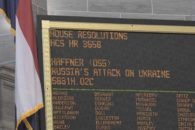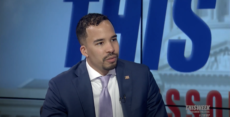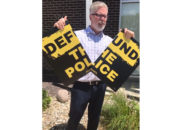The Peace Officer Standard and Training (POST) Commission met to address concerns about chokeholds, implicit bias, and other topics from Missouri’s law enforcement community Wednesday.
In the first of three virtual meetings, commissioners discussed the highest trending topics brought up by its survey on police training and discipline. The conversation covered profiling, use of force, officer training, and implicit bias.
Lincoln University Chief of Police Gary Hill, who was appointed to the commission in June, said the population of a community can make a difference in regards to bias and profiling. While all officers are required to take classes on implicit biases by the commission, Hill said officers in more diverse areas gain greater experience with diversity on the job whereas officers in rural areas might not.
“We’re receiving the training, but the interaction in diverse areas makes a difference,” Hill said. “Citizen contact is a form of on-the-job training, and it can be lacking in more rural areas.”
Platte County Sheriff Mark Owen agreed that experience makes an impact on many policing issues, and one problem facing police departments today is a lack of veterans staying on with the force to teach younger officers.
The commission also questioned how much reform was in its jurisdiction and what would have to be left to individual agencies or the Missouri Legislature. When the issue of chokeholds came up, Jefferson County Sheriff David Marshak noted that of the 34 agencies that returned surveys on the topic, about half reported having a policy regarding chokeholds on the books.
Commissioners considered public comments submitted via email over the course of the meeting. Questions covered the policy for reporting officer misconduct and whether the POST Commission has the authority to mandate training standards for new supervisors and chiefs. Commissioners noted that standards vary from one community to another, with Owen saying enforcing a more uniform standard for superiors, similar to standards established for officers, would be within the commission’s reach.
Sandy Karsten, director of the Department of Public Safety (DPS), thanked commissioners and commenters for their input.
“We want our officers to be professional and to be held accountable so we greatly appreciate the input from the community,” she said.
The commission collected comments from Missouri’s law enforcement and the public on the state’s standards and disciplinary practices for officers earlier this month. The results of the civilian survey are set to be discussed in virtual meetings on Aug. 31 and Sept. 2.
The request for comment came as the nation has continued to grapple with police brutality and racism in the wake of the murder of George Floyd, an unarmed Black man, by Minneapolis police in May. Demonstrations have continued across the country, and the discussion continued just days Jacob Blake was shot in the back seven times by a police officer in Wisconsin.
Gov. Mike Parson called the Missouri Legislature back to Jefferson City for an ongoing special session on violent crime. No bills on changes to policing have made progress in either chamber despite a number of protests in the capital city calling for criminal justice reform.
The POST Commission is tasked with establishing the core curriculum for Missouri’s 19 basic training academies, definitions, rules, and regulations for the overall program and continuing education of officers. It also serves as an advisory group for the DPS director.

Cameron Gerber studied journalism at Lincoln University. Prior to Lincoln, he earned an associate’s degree from State Fair Community College. Cameron is a native of Eldon, Missouri.
Contact Cameron at cameron@themissouritimes.com.































